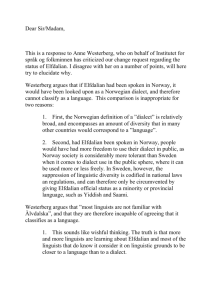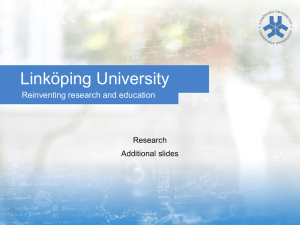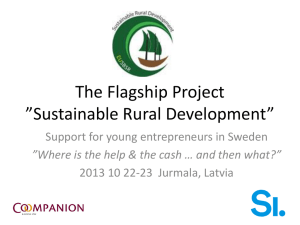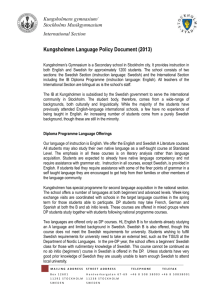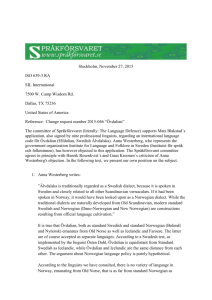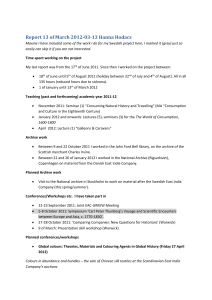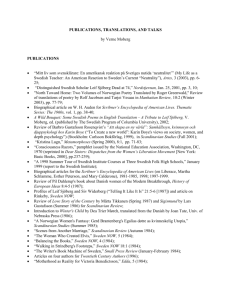A reply to Anna Westerberg
advertisement
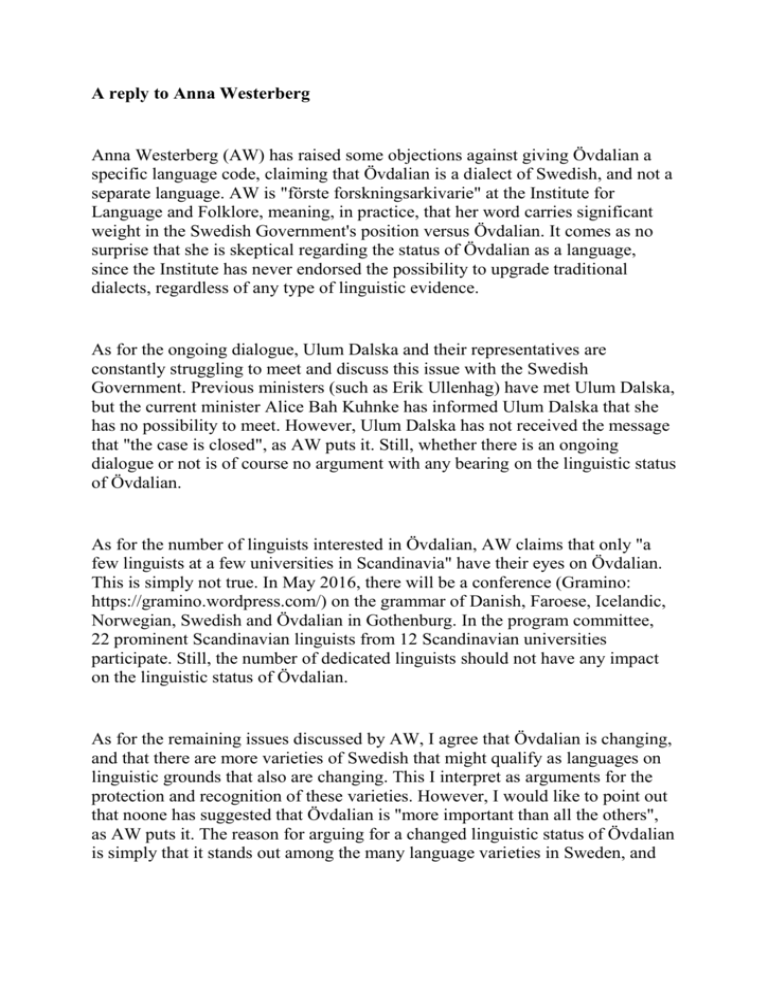
A reply to Anna Westerberg Anna Westerberg (AW) has raised some objections against giving Övdalian a specific language code, claiming that Övdalian is a dialect of Swedish, and not a separate language. AW is "förste forskningsarkivarie" at the Institute for Language and Folklore, meaning, in practice, that her word carries significant weight in the Swedish Government's position versus Övdalian. It comes as no surprise that she is skeptical regarding the status of Övdalian as a language, since the Institute has never endorsed the possibility to upgrade traditional dialects, regardless of any type of linguistic evidence. As for the ongoing dialogue, Ulum Dalska and their representatives are constantly struggling to meet and discuss this issue with the Swedish Government. Previous ministers (such as Erik Ullenhag) have met Ulum Dalska, but the current minister Alice Bah Kuhnke has informed Ulum Dalska that she has no possibility to meet. However, Ulum Dalska has not received the message that "the case is closed", as AW puts it. Still, whether there is an ongoing dialogue or not is of course no argument with any bearing on the linguistic status of Övdalian. As for the number of linguists interested in Övdalian, AW claims that only "a few linguists at a few universities in Scandinavia" have their eyes on Övdalian. This is simply not true. In May 2016, there will be a conference (Gramino: https://gramino.wordpress.com/) on the grammar of Danish, Faroese, Icelandic, Norwegian, Swedish and Övdalian in Gothenburg. In the program committee, 22 prominent Scandinavian linguists from 12 Scandinavian universities participate. Still, the number of dedicated linguists should not have any impact on the linguistic status of Övdalian. As for the remaining issues discussed by AW, I agree that Övdalian is changing, and that there are more varieties of Swedish that might qualify as languages on linguistic grounds that also are changing. This I interpret as arguments for the protection and recognition of these varieties. However, I would like to point out that noone has suggested that Övdalian is "more important than all the others", as AW puts it. The reason for arguing for a changed linguistic status of Övdalian is simply that it stands out among the many language varieties in Sweden, and that the speakers are deeply concerned about their language, and are fighting for some form of official recognition. In the future, I would welcome an objective survey of potential candidates for upgrading from dialect to language in Sweden, based on linguistic evidence and not on traditional divisions that are more than a century old. However, as long as traditional dialectologists (such as AW) have a crucial influence on the Government's policy for minority languages, this will certainly not be realized, and numerous interesting Swedish language varieties will pass away within a few years. Henrik Rosenkvist ass. professor in Scandinavian Languages The Dept. of Swedish Gothenburg University

